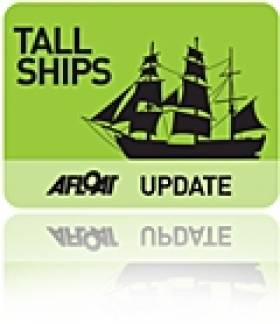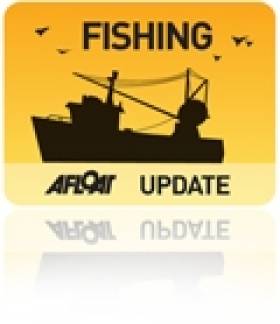Displaying items by tag: Maritime Affairs
Sail Training Ireland Assumes Mantle of Asgard
Writing in the Irish Independent on Saturday, WM Nixon welcomes the introduction of Sail Training Ireland as a big step towards getting Ireland back into tall ship sailing.
Nixon also pays tribute to Ireland's previous square-rigger, Asgard II, which held its own among taller competitors for almost three decades before its sinking in the Bay of Biscay in 2008.
That ship was also remarkable for being "one of the very few government owned and run sail training ships in the world".
In the wake of Asgard II, a new approach is being taken with Sail Training Ireland - which is an officially recognised voluntary trust, actively supported by the Irish Sailing Association, that is open to anyone and free to accept donations and corporate endowments.
"The sailing community and all those interested in promoting maritime affairs now have an opportunity for self-reliance," writes Nixon, who notes that while we get back on the road to having our own tall ship, Sail Training Ireland will be able to place Irish trainees on other ships already sailing for invaluable experience.
Minister Coveney sought the meeting with the Commissioner to discuss the planned reform of the Common Fisheries Policy (CFP) and other topical issues on the fisheries horizon at present. Minister Coveney invited Commissioner Damanaki to Ireland to meet the Irish Fishing industry in coastal communities.
Minister Coveney said "It is important from the perspective of furthering Irish ambitions that I build up a close working relationship with the Commissioner, so I saw this as an important opportunity to develop a rapport and connect in a meaningful way with Commissioner Damanaki. I had a frank and forthright discussion with her on the Reform of the CFP, and on Ireland's priorities."
The Minister set out key priority issues for Ireland in the CFP reform. A major priority is the retention of the Hague Preferences, agreed by Heads of State in 1976 by way of the Hague Resolution, under which Ireland receives additional shares of quotas for the whitefish stocks around our coast. There was been strong pressure from certain Member States that these should be abolished in the Reform. Minister Coveney said "Any interference that results in Ireland losing the current benefits of the Hague Preferences within the reformed CFP would be totally unacceptable to me. The Hague Preferences were the payment made for Ireland granting access to our waters to other Member States and a recognition of the high costs involved for the State in the control of these rich fishing grounds."
Minister Coveney set out Ireland's opposition to the mandatory privatisation of fish quotas and outlined the impacts of this policy on Ireland's coastal communities dependant on fisheries. Minister Coveney said "I used this the opportunity to explain why Ireland is strongly opposing a mandatory scheme for privatisation and trading of fish quota. I explained that the family owned fishing fleet in Ireland would be quickly bought out by international fishing companies without links to the coastal communities. I explained my strong belief that these companies would not land into Ireland and we would lose not just the jobs in the fleet but also the processing and ancillary jobs in our fishing ports."
Commissioner Damanaki has placed discarding of fish high on her agenda for the CFP reform to which the Minister made clear that he was committed to giving Ireland's support to assisting the Commissioner in identifying and implementing the appropriate measures to effectively address discards.
In addition to the issues surrounding the CFP reform, the Minister made very clear Ireland's demand for strong actions against Iceland and the Faroe Islands for their irresponsible and untenable fishing activities on the mackerel stock. The Minister said "the actions of these two fishing nations pose a serious threat to the well being of the mackerel stock which is very important to Ireland. I pressed the Commissioner to initiate strong action now, including the introduction of trade sanctions to bring pressure to bear on these two parties to come to the table with reasonable demands and agree a long term management framework for mackerel".
Finally the Minister said "I will continue to liaise closely with the Federation of Irish Fishermen and other industry representatives to further develop Ireland's negotiating position. I consider that today's meeting with Commissioner Damanaki was very useful in giving her a full understanding of Ireland's situation and the importance of the maintenance of a strong fishing industry supporting the fishing communities around our coast".
































































